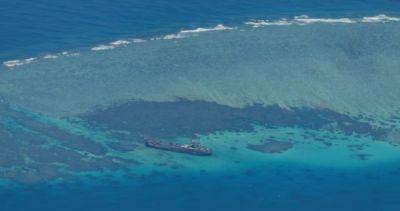South China Sea: is China’s fishing ban a ‘scare tactic’ to fend off Philippine vessels entering disputed waters?
China argues the annual moratorium is aimed at promoting sustainable fishing.
In a statement on Monday, the Department of Foreign Affairs called on China to “cease and desist from the conduct of illegal actions that violate the Philippines’ sovereignty, sovereign rights, and jurisdiction”.
The ministry also asked Beijing to “comply with its obligations under international law,” particularly the “final and binding” 2016 arbitral award that ruled in favour of Manila and found China’s assertions over the waterway have no legal basis.
The economic giant, which claims most of the South China Sea, has refused to accept the ruling.
Dindo Manhit, president of Manila-based think tank Stratbase ADR Institute, said the fishing ban aligned with China’s broader pattern of “coercive actions in reinforcing its claims among disputed waters”.
“The move is to undermine the Philippines’ authority over its own rightful territory as China continues to contest the rules-based international order,” Manhit said.
The Philippines has repeatedly lodged diplomatic protests over China’s decision, which experts say was done in a bid to uphold the country’s rights under international law, even if China is unlikely to respond to the complaints.
“This means that we’re putting on the record that we do not recognise the ban. We also must encourage other claimants to do the same,” said Sherwin Ona, associate professor at De La Salle University’s political science department.
02:37
Philippine admiral at centre of ‘new deal’ saga breaks silence on alleged South China Sea pact
Foreign policy and security analyst Lucio Pitlo III said non-Chinese fishers had been able to ply the waters in the past without getting apprehended since China began enforcing the ban in 1999.
Ye







